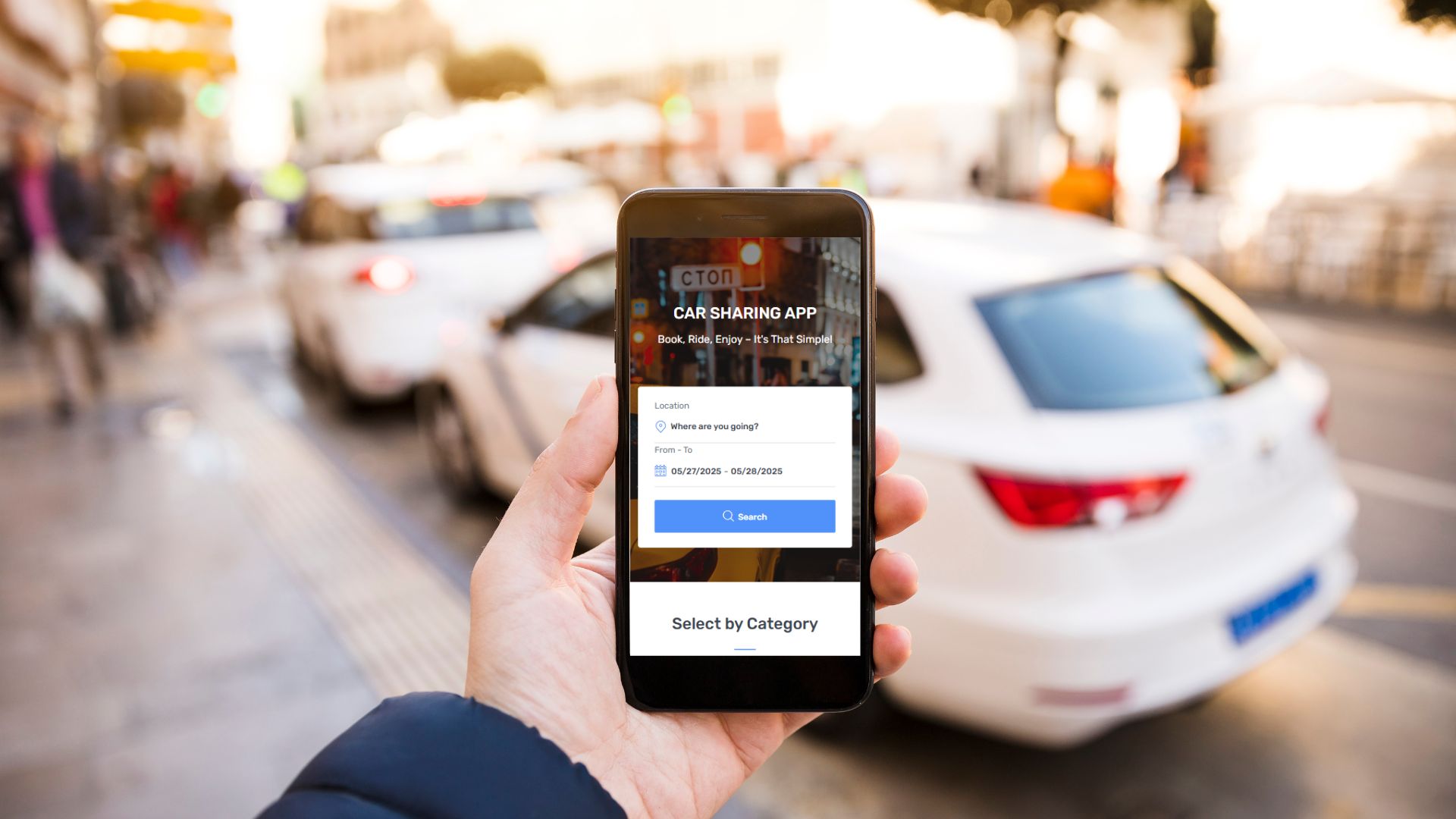How Much does Car Sharing App Development Cost?


The car-sharing market is booming, projected to hit $51.7 billion by 2030, with 68.19 million users by 2029. With an ARPU of $234.21 and 95% of revenue coming from online sales, developing a car-sharing app presents a lucrative opportunity. The U.S. leads the market, expected to generate $3 billion in 2025. If you’re considering entering this space, understanding car-sharing app development costs is crucial. This blog breaks down the key expenses to help you plan your investment wisely.
Car-sharing app development costs depend on the scope, features, and complexity of the project. Here’s a general breakdown:
| App Type | Estimated Cost Range | Development Time |
|---|---|---|
| Basic MVP | $20,000 – $50,000 | 3-6 months |
| Mid-Range App | $50,000 – $150,000 | 6-9 months |
| Enterprise-Grade App | $150,000 – $300,000+ | 9-12+ months |
Basic MVP: Includes core functionalities like user registration, ride booking, GPS tracking, and payments.
Mid-Range App: Adds advanced features like AI-based pricing, multi-language support, and driver incentives.
Enterprise Solution: Covers everything in mid-range plus custom AI algorithms, IoT integrations (keyless entry), and scalability for millions of users.
Now, let’s explore the key factors that determine the final cost.
The more features you add, the higher the cost.
Basic Features: User profiles, ride booking, payment processing.
Intermediate Features: Ride scheduling, fare estimation, driver ratings.
Advanced Features: AI-driven dynamic pricing, carpooling, electric vehicle (EV) support.
Example:
Implementing real-time ride tracking (basic) costs $5,000 – $10,000.
Adding AI-based surge pricing (advanced) can add $15,000 – $30,000.
Will your app be iOS-only, Android-only, or cross-platform?
Native Apps (iOS/Android): Better performance but higher cost ($50,000 – $150,000).
Cross-Platform (Flutter/React Native): Faster development but may lack some native optimizations ($30,000 – $100,000).
A well-designed app improves user retention but increases costs.
Template-Based Design: $5,000 – $15,000 (faster, less unique).
Custom UI/UX Design: $20,000 – $50,000 (tailored for better engagement).
Developer rates vary by region:
| Region | Hourly Rate | Estimated Cost (Mid-Range App) |
|---|---|---|
| North America | $100 – $250 | $100,000 – $250,000 |
| Eastern Europe | $30 – $100 | $50,000 – $150,000 |
| Asia | $20 – $80 | $40,000 – $120,000 |
Most car-sharing apps rely on APIs for:
Maps & Navigation (Google Maps, Mapbox) → $5,000 – $15,000
Payments (Stripe, PayPal) → $3,000 – $10,000
SMS/Email Notifications (Twilio, SendGrid) → $2,000 – $8,000
GDPR/CCPA Compliance: $5,000 – $15,000
Data Encryption & Fraud Detection: $10,000 – $25,000
Two-Factor Authentication (2FA) – Secure login via OTP or biometrics.
Customized Rides – Choose vehicle type (SUV, luxury, EV).
Live Vehicle Tracking – Real-time GPS with ETA updates.
Payment Gateway – Credit cards, digital wallets, subscriptions.
Quick Trip-Matching Algorithm – Instantly connects riders with nearby drivers.
Driver Accreditation – License verification & background checks.
Rides Management – Accept/reject rides, view earnings.
Route Optimization – AI suggests the fastest routes.
Language Settings – Support for multilingual drivers.
Order & Earnings History – Track daily/weekly income.
Interactive Dashboard – Monitor rides, revenue, and user activity.
Content Management – Update promotions, FAQs, and policies.
Revenue Management – Track commissions and payouts.
Vehicle Type Management – Add/edit car categories (sedan, bike, van).
Bonus Payment System – Incentives for top-performing drivers.
AI-Based Dynamic Pricing (adjusts fares based on demand).
In-App Chat/Call Support (secure communication).
Keyless Car Entry (via Bluetooth/NFC).
Carpooling Option (split fares with other passengers).
EV Charging Station Integration (for electric cars).
A car rental or sharing platform can generate revenue through multiple models:
Commission-Based Model
The most common approach, where the platform takes a 10-30% cut from each ride (similar to Uber or Lyft).
Works well for peer-to-peer (P2P) car-sharing, where private car owners list their vehicles.
Subscription Plans
Offer monthly or yearly memberships ($10-$50) for frequent users, providing benefits like:
Discounted rides
Free cancellations
Priority booking
Encourages customer loyalty and steady cash flow.
Car Rental Fees
Charge users based on hourly/daily rentals (like Zipcar).
Ideal for business travelers or tourists needing longer-term vehicle access.
Can include insurance packages for extra revenue.
Additional Revenue Streams
In-App Ads: Partner with local businesses (gas stations, car washes, restaurants) to display targeted ads.
Premium Features: Offer paid upgrades like:
Priority booking during peak times
Zero cancellation fees
Exclusive vehicle options (luxury cars, EVs)
Building a car-sharing app requires significant investment ($20,000-$300,000+), but can be highly profitable with the right strategy. If you want to launch quickly and at low cost, choosing a ready-made solution is the best option – you can get it from Zipprr. Focus on essential features first, then scale with advanced functionalities.
Monacgo: 7/1253 Subramania Siva Street, NGO colony, Nagamalaipudukottai, Madurai – 625019, Tamil Nadu, India.
Mobile: +91 9789308131
Monacgo: 403 Starkweather Ave, Cleveland, OH 44113, United States
Mobile: +1 (585) 632-0256
Email: support@zipprr.com
Disclaimer: The keywords Gojek, Airbnb, Uber, UberEats, UrbanClap, Amazon, Carousell, ChatGPT, Youtube, Facebook, Turo, Practo, TaskRabbit, TikTok, Udemy, Whatsapp, Tinder and Letgo are solely used for marketing purposes, and we are not associated with any of the mentioned companies in any form. The source code and design of our products are fully owned by sellers. We are not using any of their copyrighted materials.
© 2025 Zipprr. All rights reserved.
